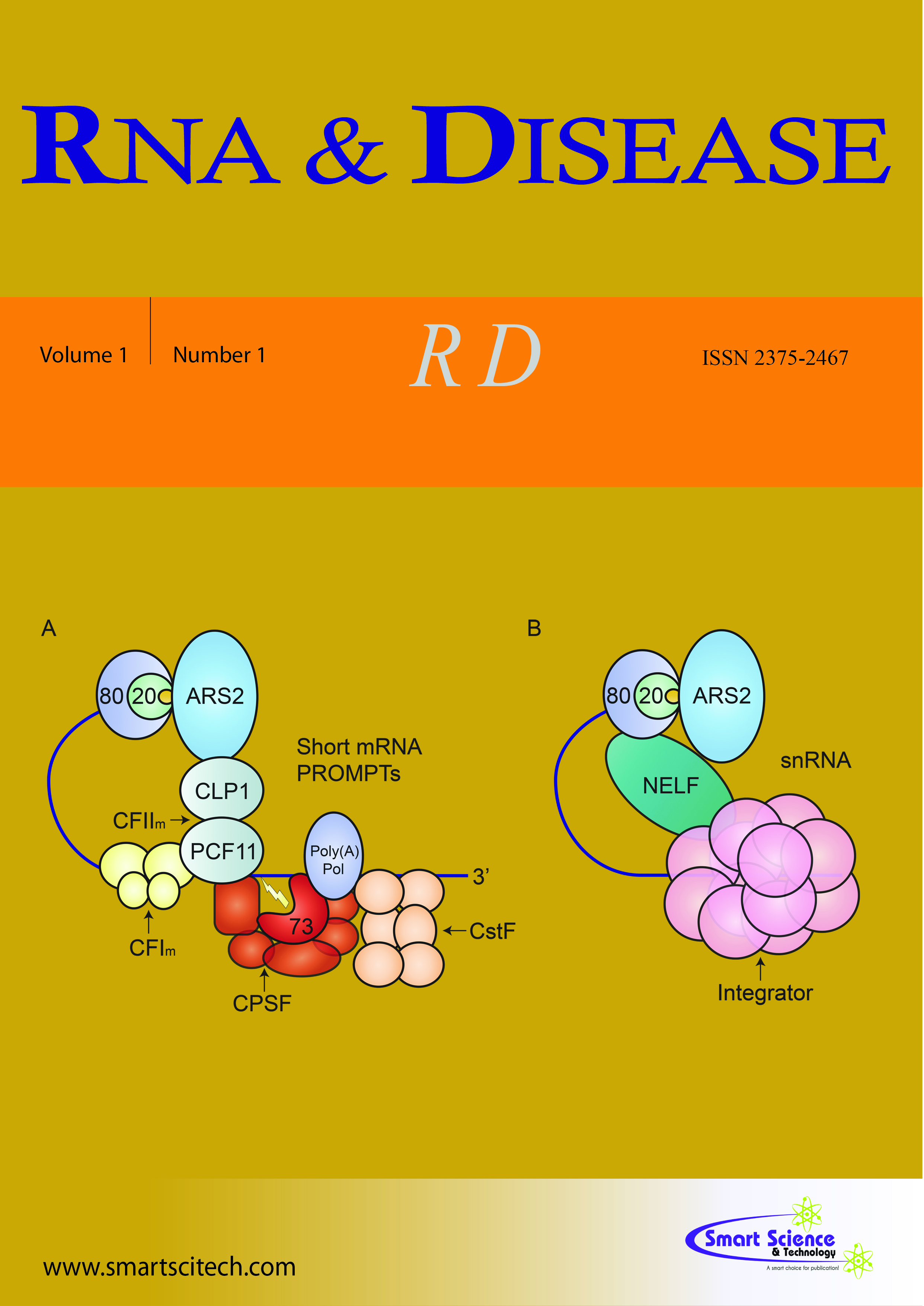Aging and systemic hormonal status affects the circulating miR-21, miR-146a and FasL levels
DOI: 10.14800/rd.552
Abstract
microRNAs are small molecules, found in all cell types and body fluids, which most commonly affect negatively to gene expressions by translational repression. Their role in various physiological conditions and diseases has been emphasized during the last twenty years. In our recent studies with postmenopausal monozygotic twin sisters (n=11), we have investigated how different systemic hormonal status affects the levels of specific circulating microRNAs and other molecules related to inflammation and apoptosis, both processes associated with aging. Our results have shown that the systemic levels of miR-21, miR-146a and Fas ligand are lower within the postmenopausal women who are using estrogen-based hormonal replacement (HRT), compared to their non-using co-twins (p=0.018, p=0.039, p=0.021, respectively). To strengthen the aging effect, we also measured the same markers from the premenopausal control women (n=8), with natural hormonal status, and found out that the inflammatory profile was healthier among the young women and that the serum miR-21 profile was more similar with the HRT users than non-users, and miR-146 and FasL profile more similar to non-users. These findings demonstrate that HRT has effects on the circulating inflammation related regulatory molecules. Whether we can state that the effects are clearly positive or negative, needs further investigations and understanding of the regulatory system.











